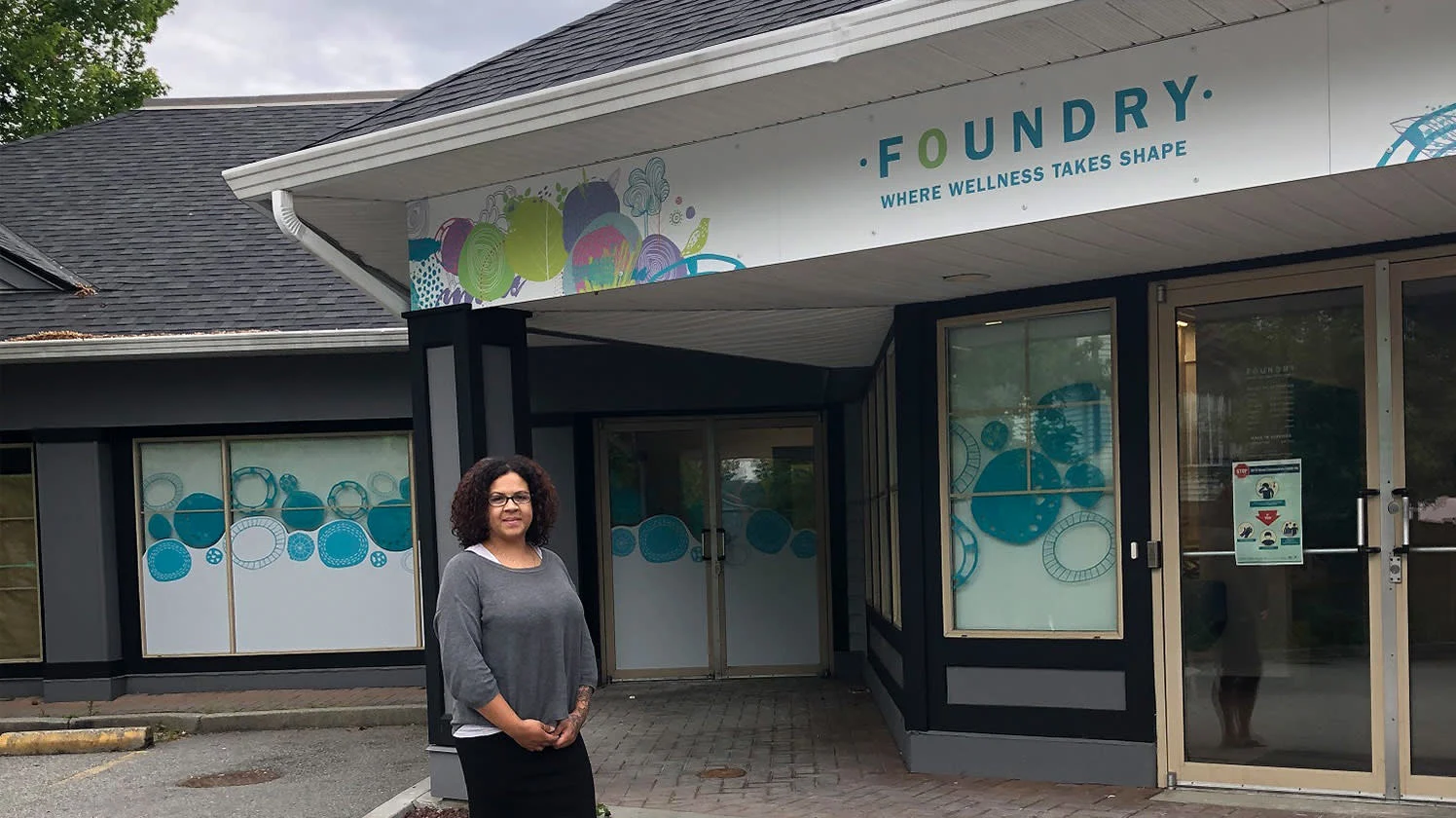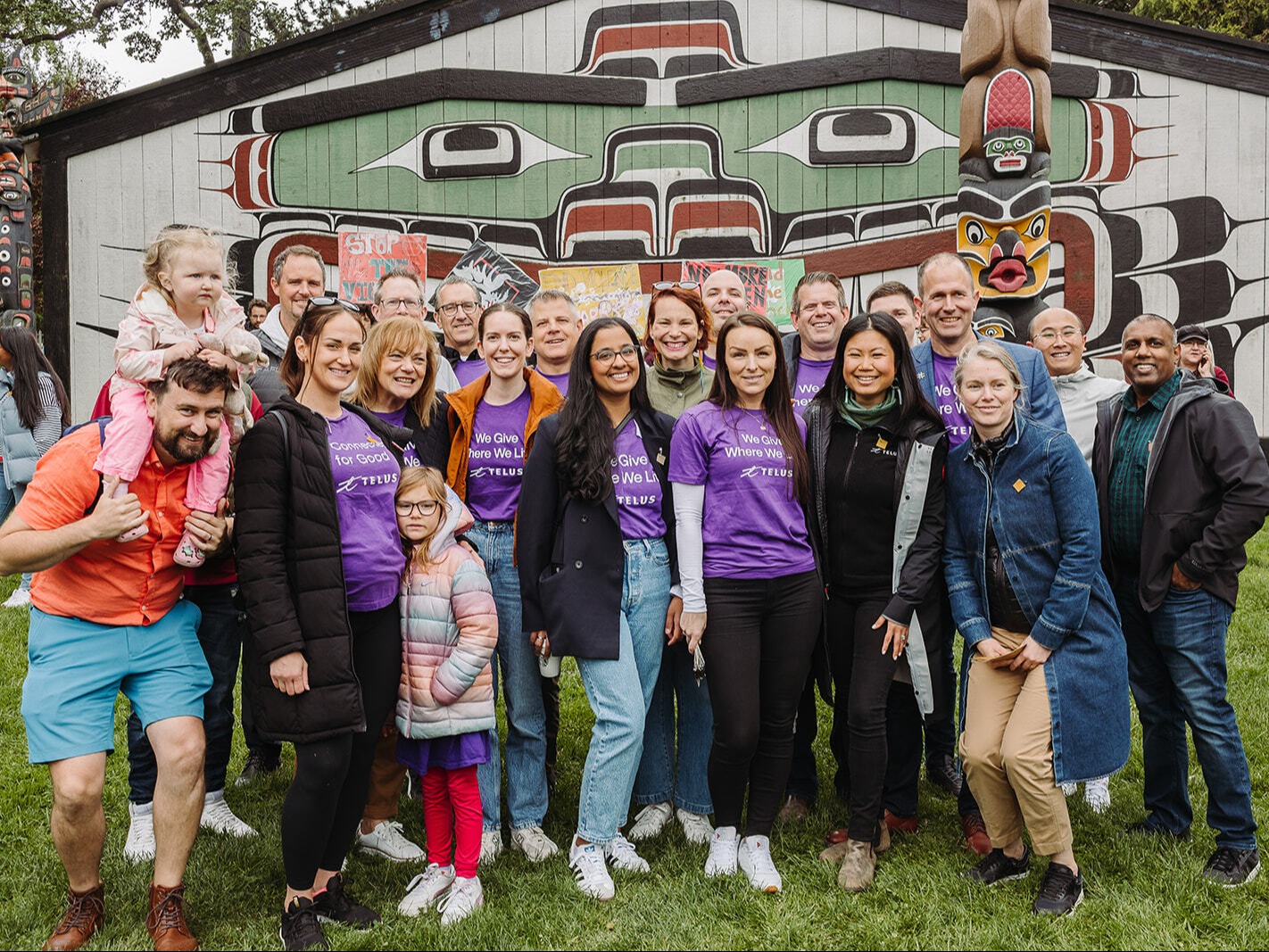
Connecting Canada
How cell phones are helping vulnerable youth cope with COVID-19
Jun 29, 2020
(Above) TELUS has delivered more than 10,000 smartphones and tablets – paired with zero-dollar data plans – to non-profit organizations across the country to help keep Canadians safe and connected during the public health emergency.
The silence in the car spoke volumes to the staff member from Our Place Peel as she drove her teenage client to a specialized COVID-19 facility near Toronto.
The teen had been asked to self-isolate after having potentially contracted the virus. Homeless and alone, and now facing a 14-day quarantine, the young woman was falling under the weight of a creeping fear that only uncertainty can inspire.
“She was scared,” said Christy Upshall, chief executive officer of
Our Place Peel
, a non-profit charity that provides shelter and support for homeless and vulnerable youth in the region. “She was already struggling with her mental health and trying to keep secure housing over her head. The positive test for COVID-19 just added to her levels of stress and anxiety, and feelings of insecurity.” It didn’t help that the teen had no way of connecting with the outside world. Without a cell phone of her own, she was facing a particularly difficult time in mandatory quarantine.

It’s a scenario that Upshall has seen all too often. At a time in their lives when most teens are TikToking or Snapchatting with friends, vulnerable youth across Canada can too often be left feeling isolated and disconnected. For someone struggling to survive, a cell phone is a vital link to support systems including friends, healthcare providers, educators, employers, and social workers.
Emergency measures put in place to help control the spread of COVID-19 have only intensified these feelings for homeless youth and those experiencing instability and lacking support.
It’s why TELUS has expanded its national
TELUS Mobility for Good
initiative to help keep Canadians safe and connected during the public health emergency. To that end, TELUS has delivered more than 10,000 smartphones and tablets – paired with zero-dollar data plans – to non-profit organizations across the country. The partnership helps ensure the devices end up in the hands of those who need them most.
At Our Place Peel, for instance, the 14 phones and data plans received through the program are helping youth, like Upshall’s teenage client, stay connected, healthy and, in some cases, alive.
“Depression arises from social isolation and at least 70 percent of our kids are struggling with mental health issues when they arrive at the shelter,” she said. “Without connectivity during COVID-19, their depression could have deepened. It’s such a vulnerable population.”
Safe and connected
For underserved young people in the Vancouver suburb of Maple Ridge, British Columbia, access to a cell phone is also proving to be a critical lifeline to vital social services during the pandemic.
COVID-19 has kept many clients of the
Foundry Ridge Meadows
youth clinic close to home – though, in some cases, their homes are challenging, even unsafe, places to be. With no cell phone, the struggles they may experience are made that much worse – and it can feel as if there is nowhere to safely go to get help.
“It’s impossible to tell somebody that you are struggling when you’re stuck in a home with no way to communicate with the outside world,” said Shelley Grogan, Director of Fund Development at Maple Ridge/Pitt Meadows Community Services, the non-profit that operates the Foundry Ridge Meadows.

Roughly 650 youth, ages 12 to 24 years, sought help last year from the Foundry Ridge Meadows, which provides clients with mental health and substance use support, as well as peer support, physical health and support services.
Upon declaration of the pandemic in mid-March in B.C., the clinic’s drop-in services closed and all face-to-face recovery and mental health programming ceased, except in extreme cases. Although programming later resumed virtually, Grogan said access to it wasn’t equitable for youth without the technology needed to access it.
“You could access that counsellor or child psychiatrist online, but you needed a phone and data to do it,” she said.
Even for those with phones but no data, it meant they had to connect to Foundry services from their home or public place where confidentiality was compromised.
“We heard things like, ‘I can’t call you because I now have to use my mom’s phone’; whereas they used to drop in on Tuesday,” said Grogan of the particular challenges for youth during COVID-19.
“A phone is not a luxury, but a necessity for many of our young clients,” she said.
A lifeline to support
Through the Mobility for Good Emergency Response program, Maple Ridge/Pitt Meadows Community Services received 30 mobile phones with data plans for Foundry Ridge Meadows clients with limited access to technology and high-risk living situations. The phones now give young recipients the ability to call their psychologist, counsellor, or friend when they need help or just a friendly conversation.
“A phone gave them the confidence to step outside their difficult situations, knowing that wherever they land, they have the ability to connect with someone who cares,” Grogan said. “Having a phone helps them land in that safe space.”
Back in Peel, Ontario, Upshall’s teen client has safely finished her quarantine and has fully recovered from the virus. She’s now back at the Our Place Peel shelter and attending school.
Upshall and her team could not be more thrilled with the outcome, noting it speaks to the power of the connection.
“Having a phone from TELUS reduced the anxiety created by quarantine for both her and us,” she said. “It allowed staff to check in with her every day and she could call us as often as she needed to. Keeping connected is key.”
Learn more about how Mobility for Good™ helps youth aging out of foster care gain their independence while staying connected to the people, resources and opportunities they need to succeed.
Watch this video
.

